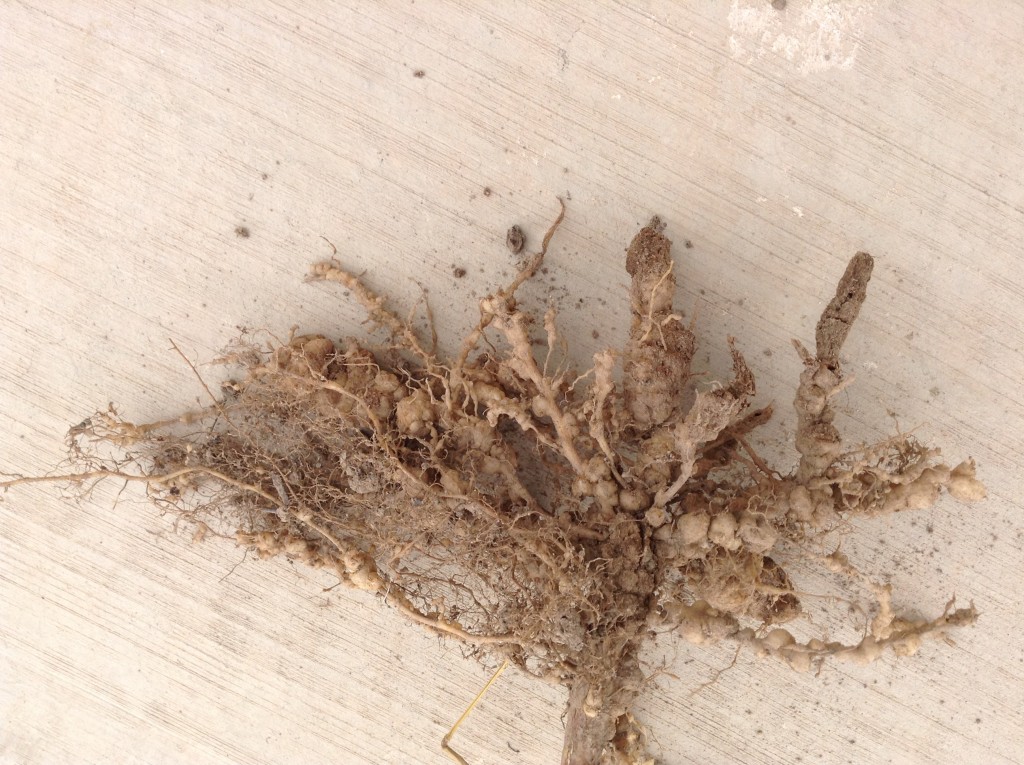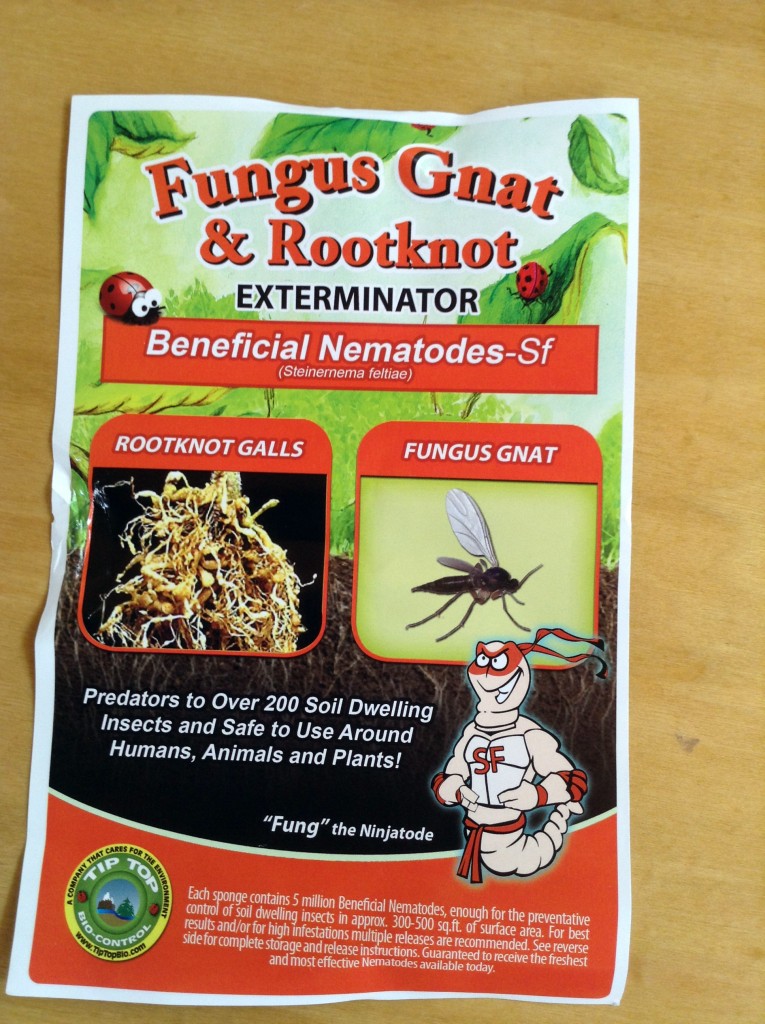I’d heard of nematodes, but was only vaguely aware of them as some sort of awful garden pest. Mostly, I focus most of my energy on challenges I already have, and nematode problems we did not have. Until now.
This year in clearing out some beds for fall plantings, I found roots that were gnarled with lumps, indicative I learned, of bad nematodes.
I went on to learn that nematodes are the most prevalent multi-celled animals on earth and roughly resemble microscopic worms. There are both bad and good varieties, and the bad ones destroy about 5% of crops worldwide. In gardens like mine, they are responsible for lower yields and weaker plants.
There are several ways to combat bad nematodes: replace all your soil (not a great option), plant French marigolds (questionable as to effectiveness) or fight them with so-called beneficial nematodes. These good nematodes can also combat other insect pests.
Turning to Amazon, we found many vendors who sell these beneficial nematodes, and these are the ones we ended up with.
They are shipped live and must be kept cool or they’ll die. They come in a little sponge which is washed out into water which is sprayed on the garden with a hose sprayer. They need to be applied in the evening when it is cool and there is low light. Apparently, they’re most effective with multiple applications, so we’ll do this again a couple times in the spring.
How did these bad nematodes get here, you ask? We asked ourselves the same question. One guess is that they were brought in with loads of external compost.
It will likely be another year before we know if this worked, so stay tuned for that.
In the meantime, about 400 garlic and shallots are now in the ground for winter. We’ll hope the nematodes don’t affect them.


